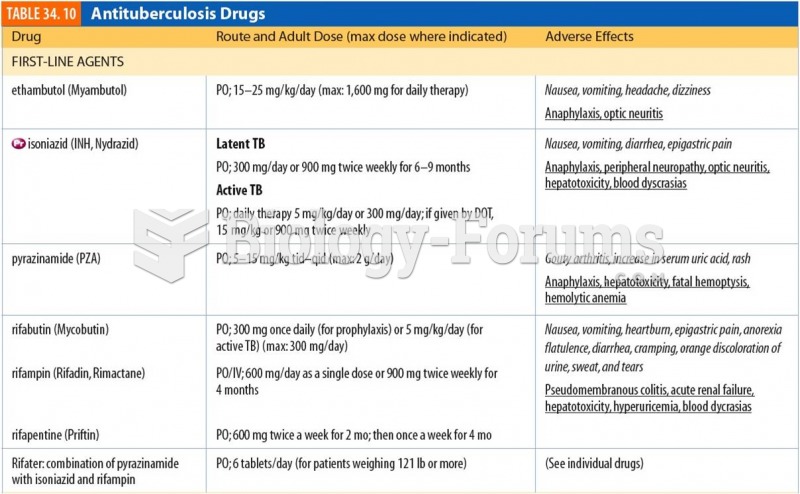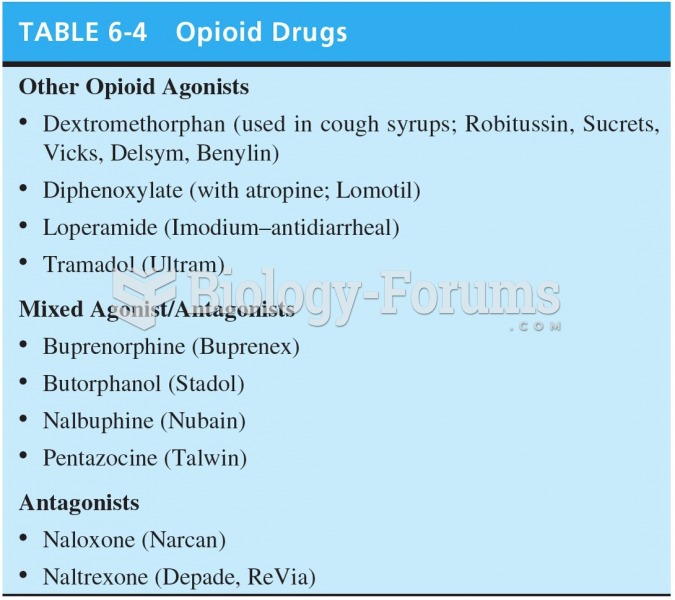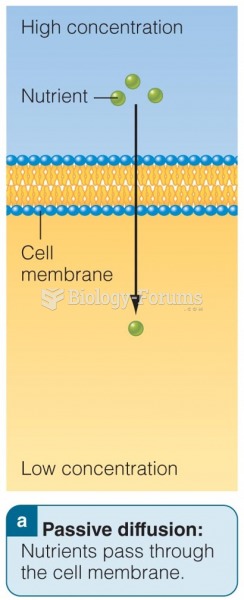Answer to Question 1
Correct Answer: 1,2
Rationale 1: Increased gastric pH may enhance the absorption of acidlabile drugs such as ampicillin and penicillin and slow the absorption of weak acids such as Phenobarbital.
Rationale 2: Delayed gastric emptying may keep a drug in the stomach longer, increasing the absorption across the stomach mucosa but slowing the rate of drug absorption for drugs designed to be absorbed in the intestine.
Rationale 3: The immature hepatic cytochrome P450 enzyme system affects metabolism of drugs, not absorption.
Rationale 4: The immaturity of the kidneys affects excretion of drugs, not absorption.
Rationale 5: The high water-to-fat proportion affects distribution of drugs, not absorption.
Global Rationale: Increased gastric pH may enhance the absorption of acidlabile drugs such as ampicillin and penicillin and slow the absorption of weak acids such as Phenobarbital. Delayed gastric emptying may keep a drug in the stomach longer, increasing the absorption across the stomach mucosa but slowing the rate of drug absorption for drugs designed to be absorbed in the intestine. The immature hepatic cytochrome P450 enzyme system affects metabolism of drugs, not absorption. The immaturity of the kidneys affects excretion of drugs, not absorption. The high water-to-fat proportion affects distribution of drugs, not absorption.
Answer to Question 2
Correct Answer: 2
Rationale 1: Minimizing the cost of medications is one of many competing priorities.
Rationale 2: Interactions with other medications can occur with over-the-counter or herbal medications.
Rationale 3: Over-the-counter and herbal medications can be important parts of an individual's regimen.
Rationale 4: There is no requirement that use of these medications be reported to anyone.
Global Rationale: Interactions with other medications can occur with over-the-counter or herbal medications. Minimizing the cost of medications is one of many competing priorities. Over-the-counter and herbal medications can be important parts of an individual's regimen. There is no requirement that use of these medications be reported to anyone.







